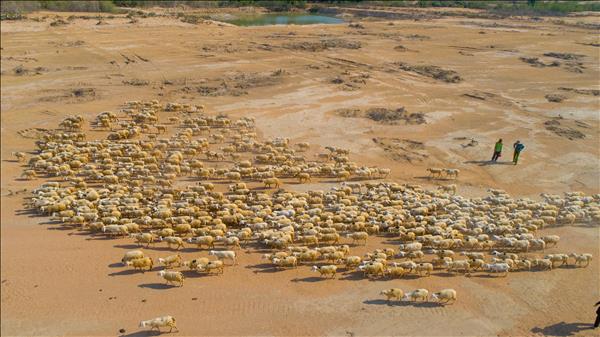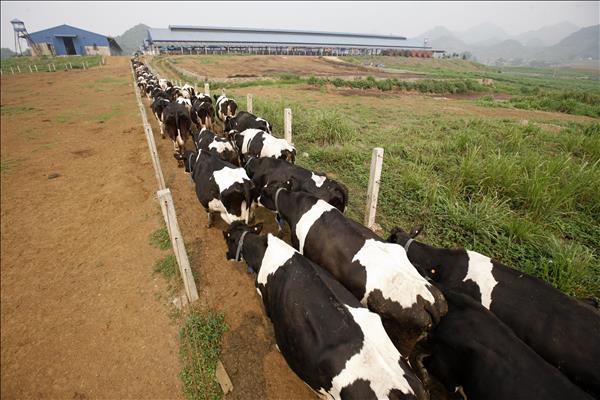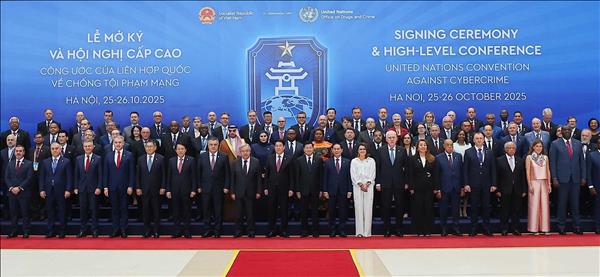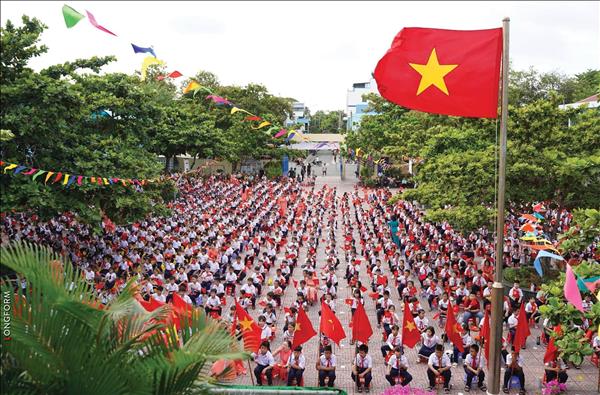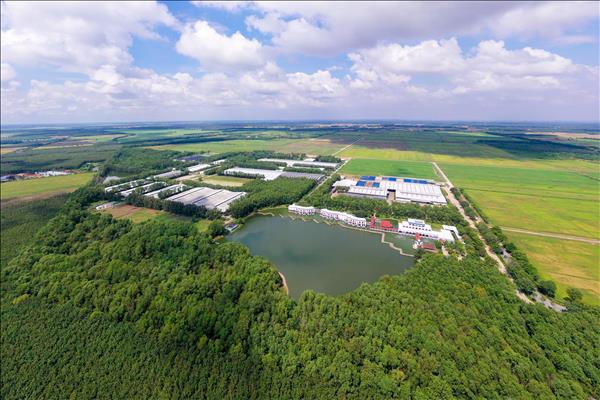The Vietnamese delegation to the event was led by Minister of National Defense General Ngo Xuan Lich and Deputy Chief of the General Staff of the Vietnam People’s Army Senior Lieutenant General Pham Ngoc Minh.
Apart from a keynote address delivered by Indian Prime Minister Narendra Modi at the opening session, representatives from member nations of the dialogue focused on discussing and showing their opinions in main topics such as US leadership and the challenges of Indo-Pacific security, de-escalating the crisis in the Democratic People’s Republic of Korea, shaping Asia’s evolving security order, new dimensions of terrorism and counter-terrorism and raising the bar for regional security cooperation.
The event also featured several sessions covering such issues as new strategic technologies and the future of conflict, maritime security enhancement, strategic implications of military capability development in the Asia-Pacific and the management of competition in regional security cooperation.
Delivering the first remarks at the third plenary session themed “Shaping Asia’s Evolving Security Order” at the Dialogue, Minister of National Defense General Ngo Xuan Lich said independence, self-reliance, promotion of cooperation and observance of international laws are fundamental to security, peace and development in the region and the world.
He noted that traditional and non-traditional security threats, including territorial disputes and terrorism, are clearly visible, posing real and imminent risks to stability of Asia-Pacific.
“The best way for parties involved to settle their disputes is to employ peaceful means and diplomatic dialogues without the use of force, the threat to use force or unilateral actions.”
He suggested that to resolve complex security issues, each nation must decide its own destiny but at the same time, they also need fair-minded support from the international community, particularly major countries, towards the common benefits.
The states must develop mutual trust through consultation, exchange of information, high-level visits, and joint activities between armed forces. Most importantly, each of them must promote policy transparency to demonstrate the goodwill and determination to fulfill their commitments and obligations.
Furthermore, each country should expand and diversify dialogue mechanisms and regional and inter-regional cooperation in politics, defense and security, and economics, he emphasized.
They should study the development of a new mechanism to support involved parties in the settlement of disputes and security issues, especially complicated matters like those in the Korean Peninsula, the East China Sea and the East Sea, with respect for each nation’s sovereignty and international law and on the principle of non-interference in each other’s domestic affairs, the Vietnamese Defense Minister said.
He moved on to highlight ASEAN as a successful model for cooperation and connectivity between small and medium-sized countries in the regional security architecture. ASEAN has played a vital role in shaping the security structure and maintaining peace and stability in Asia-Pacific.
The official reiterated that Vietnam is consistent and supportive of a peaceful resolution of territorial disputes in the East Sea on the basis of international law, including the 1982 United Nations Convention on the Law of the Sea (UNCLOS).
He underlined the observance of the Declaration on the Conduct of Parties in the East Sea (DOC) alongside the conclusion of the Code of Conduct in the East Sea (COC) to build strategic trust between ASEAN and China and show determination to develop a regional security order based on international law.
He stressed that Vietnam believes any act violating other nation’s sovereignty or militarization or military reinforcements are inconsistent with international law and run counter to regional commitments. Instead, the involved parties need to demonstrate their responsibility to obtain a maritime order so that the East Sea can truly be a water of peace, cooperation and friendship.
Speaking at the final plenary session, Singaporean Defense Minister Ng Eng Hen stressed that despite international order in both security and trade built after World War II has not been broken, regional developments and changes in the power balance of big countries are making the order in the Asia-Pacific change.
He urged involved parties to strengthen coordination in building and consolidating an order based on international law in order to maintain development and prosperity in the region.
Convened by the London-based International Institute for Strategic Studies, the Shangri-La Dialogue is the most important regular gathering of defense professionals in Asia-Pacific, a vital annual fixture in the diaries of ministers and their civilian and military chiefs of staff.
Since its launch in 2002, the dialogue has built confidence and fostered security ties by facilitating easy communication among the region’s most important defense and security policymakers.
Apart from a keynote address delivered by Indian Prime Minister Narendra Modi at the opening session, representatives from member nations of the dialogue focused on discussing and showing their opinions in main topics such as US leadership and the challenges of Indo-Pacific security, de-escalating the crisis in the Democratic People’s Republic of Korea, shaping Asia’s evolving security order, new dimensions of terrorism and counter-terrorism and raising the bar for regional security cooperation.
The event also featured several sessions covering such issues as new strategic technologies and the future of conflict, maritime security enhancement, strategic implications of military capability development in the Asia-Pacific and the management of competition in regional security cooperation.
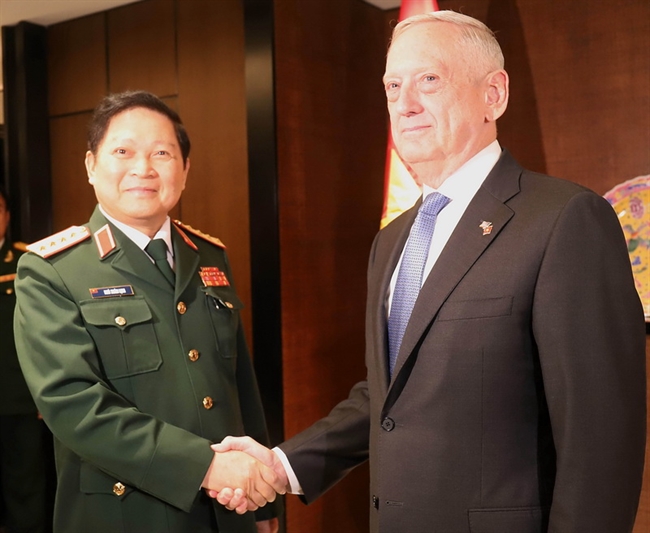 On the sidelines of the 17th Shangri-La Dialogue, Minister of National Defense General Ngo Xuan Lich has a bilateral meeting with US Secretary of Defense James Mattis. Photo: Xuan Vinh/VNA  General Ngo Xuan Lich has a bilateral meeting with Defense Minister of New Zealand Ron Mark. Photo: Xuan Vinh/VNA 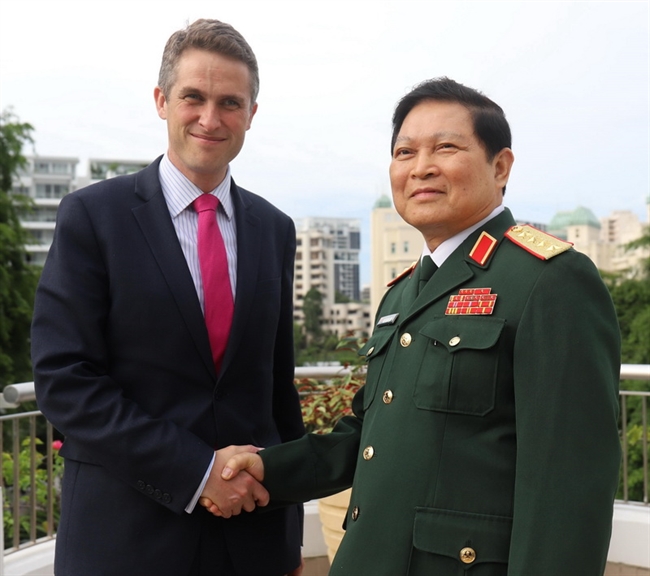 The Vietnamese denfense official has a meeting with UK Secretary of State for Defense Gavin Williamson. Photo: Xuan Vinh/VNA 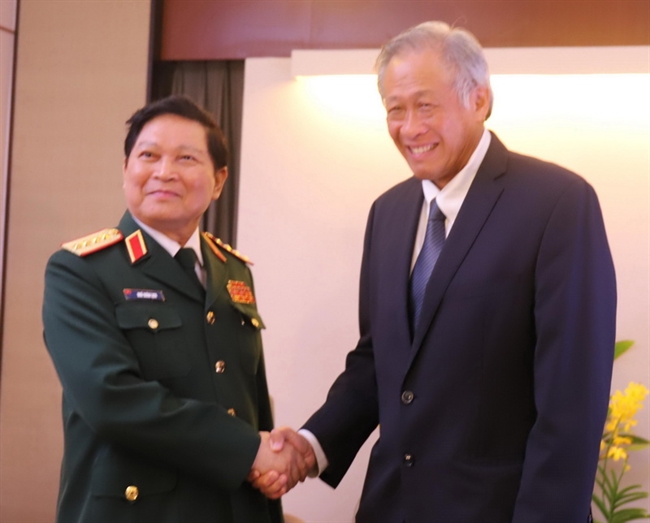 General Ngo Xuan Lich has a bilateral meeting with Singaporean Defense Minister Ng Eng Heng. Photo: Xuan Vinh/VNA |
| On the sidelines of the 17th Shangri-La Dialogue, General Ngo Xuan Lich had bilateral meetings with Defense Minister of New Zealand Ron Mark, UK Defense Secretary Gavin Williamson, Singaporean Defense Minister Ng Eng Heng, Australian Defense Minister Marise Payne, Japanese Defense Minister Itsunori Onodera, and French Defense Minister Florence Parly. |
He noted that traditional and non-traditional security threats, including territorial disputes and terrorism, are clearly visible, posing real and imminent risks to stability of Asia-Pacific.
“The best way for parties involved to settle their disputes is to employ peaceful means and diplomatic dialogues without the use of force, the threat to use force or unilateral actions.”
He suggested that to resolve complex security issues, each nation must decide its own destiny but at the same time, they also need fair-minded support from the international community, particularly major countries, towards the common benefits.
The states must develop mutual trust through consultation, exchange of information, high-level visits, and joint activities between armed forces. Most importantly, each of them must promote policy transparency to demonstrate the goodwill and determination to fulfill their commitments and obligations.
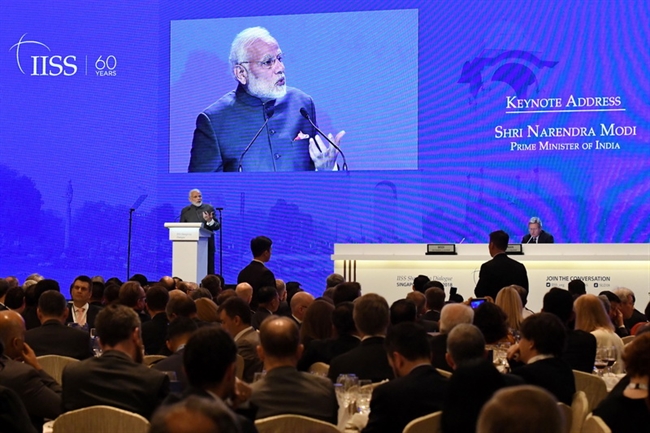 Indian Prime Minister Narendra Modi delivers a keynote address at the opening session of the 17th Shangri-La Dialogue in Singapore. Photo: AFP / VNA 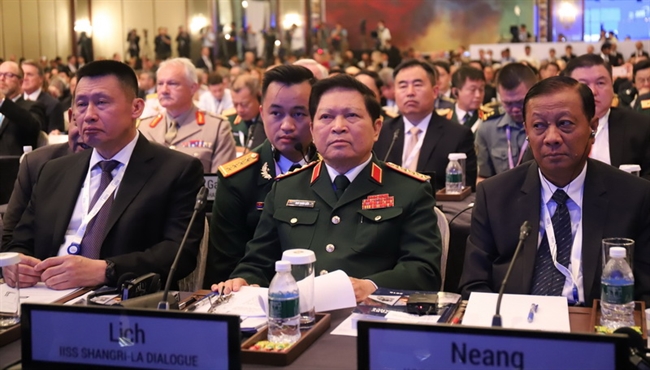 General Ngo Xuan Lich attends the first plenary session of the 17th Shangri-La Dialogue. Photo: Viet Dung/VNA 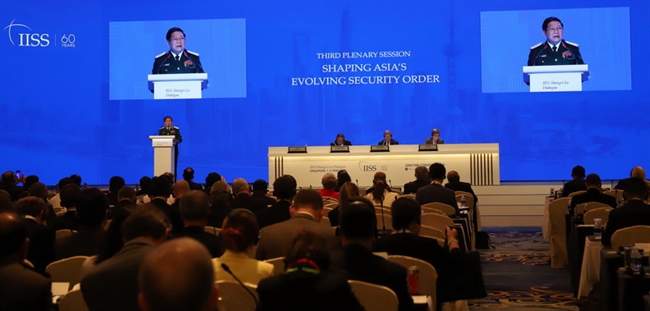 Minister of National Defense Ngo Xuan Lich makes a speech at the third plenary session themed “Shaping Asia’s Evolving Security Order”. Photo: Viet Dung / VNA 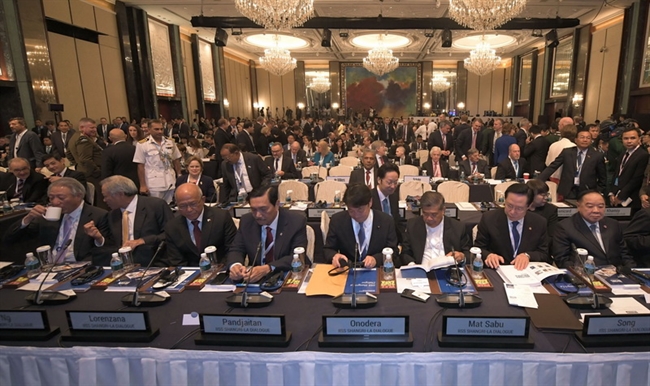 On the second day of the 17th Shangri-La Dialogue. Photo: Xinhua / VNA |
Furthermore, each country should expand and diversify dialogue mechanisms and regional and inter-regional cooperation in politics, defense and security, and economics, he emphasized.
They should study the development of a new mechanism to support involved parties in the settlement of disputes and security issues, especially complicated matters like those in the Korean Peninsula, the East China Sea and the East Sea, with respect for each nation’s sovereignty and international law and on the principle of non-interference in each other’s domestic affairs, the Vietnamese Defense Minister said.
He moved on to highlight ASEAN as a successful model for cooperation and connectivity between small and medium-sized countries in the regional security architecture. ASEAN has played a vital role in shaping the security structure and maintaining peace and stability in Asia-Pacific.
| The 17th Shangri-La Dialogue gathered over 500 senior defense officials and scholars from more than 50 countries and territories. |
He underlined the observance of the Declaration on the Conduct of Parties in the East Sea (DOC) alongside the conclusion of the Code of Conduct in the East Sea (COC) to build strategic trust between ASEAN and China and show determination to develop a regional security order based on international law.
He stressed that Vietnam believes any act violating other nation’s sovereignty or militarization or military reinforcements are inconsistent with international law and run counter to regional commitments. Instead, the involved parties need to demonstrate their responsibility to obtain a maritime order so that the East Sea can truly be a water of peace, cooperation and friendship.
Speaking at the final plenary session, Singaporean Defense Minister Ng Eng Hen stressed that despite international order in both security and trade built after World War II has not been broken, regional developments and changes in the power balance of big countries are making the order in the Asia-Pacific change.
He urged involved parties to strengthen coordination in building and consolidating an order based on international law in order to maintain development and prosperity in the region.
Convened by the London-based International Institute for Strategic Studies, the Shangri-La Dialogue is the most important regular gathering of defense professionals in Asia-Pacific, a vital annual fixture in the diaries of ministers and their civilian and military chiefs of staff.
Since its launch in 2002, the dialogue has built confidence and fostered security ties by facilitating easy communication among the region’s most important defense and security policymakers.
By VNA/VNP

